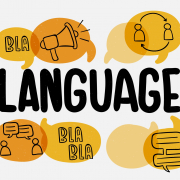The Advantages of Speaking More than One Language
As the nations of the world become more accessible to one another, the advantages of speaking more than one language become more evident. Knowing more than one language isn’t just a mark of a good education anymore. Being bilingual is an edge in school, in the workplace and in life.
Studies have shown that being bilingual gives students an advantage in scholastic tasks. Many aspects of brain function are strengthened by learning and practicing another language. Knowing another language enhances memory, improves decision-making skills, makes you more perceptive, and boosts your abilities within your native language. It may even help stave off dementia.
The brain is often likened to a muscle in that exercising it makes it stronger. Learning a new language means memorizing not only the vocabulary but the inherent rules of the language as well. A bilingual person often has better memory capacity for lists and sequences because this part of the brain is receiving regular exercise.
A bilingual person often has better memory capacity for lists and sequences because this part of the brain is receiving regular exercise.
In much the same way, deciding what words to use in more than one language hones the speaker’s decision-making skills. Thinking critically about language and vocabulary exercises this function of the brain. The “executive function” of the brain, which acts as the control center, has to learn how to ignore distractions and focus on the most important information. Mentally translating also helps the speaker achieve a fuller understanding of his native language as he searches to say the same thing using a different language.
All these cognitive benefits make for smarter and better employees. In an increasingly globalized economic community, having a second (or third) language is also a definitive advantage in international business. It shows an understanding and respect of the world outside of your own culture, implies a high level of intelligence, and it puts people of another culture at ease. All of these are valuable tools in a business setting.
Perhaps the most interesting advantage of bilingualism is that there does not seem to be an end date. The perks of having this skill last from toddlerhood through old age. Learning a language as an adult gives the same advantages as learning as a child.
The improved cognition lasts into our elder years and may even help delay the onset or even prevent some forms of dementia. One study at the University of California, San Diego showed that the higher the degree of bilingualism a study participant possessed, the later the onset of Alzheimer’s symptoms occurred.
Excellent communication is important in all facets of life and work. Learning another language help make communicating easier. It also leaves a deep, lasting, and very positive imprint on the brain itself.





















Leave a Reply
Want to join the discussion?Feel free to contribute!